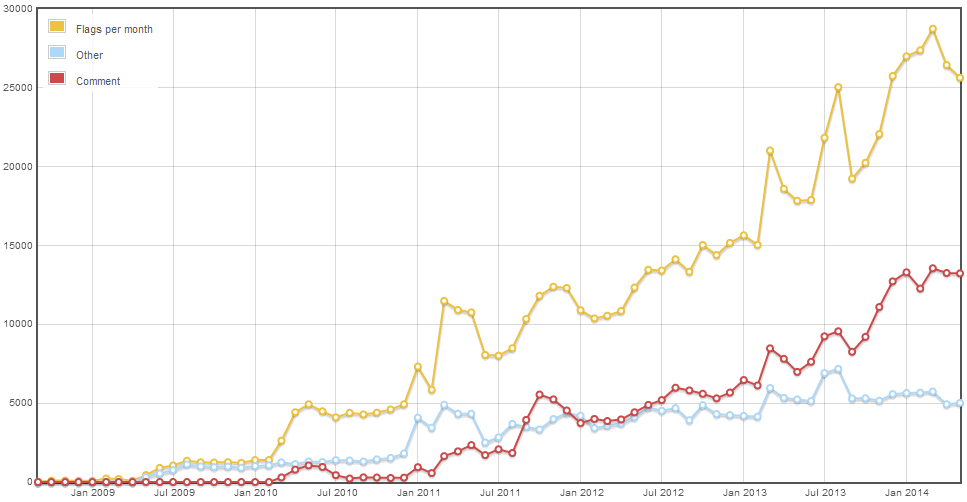I think the system is broken.
You're right - it is. The number of flags has grown considerably over the past few years, and while we've moved a big chunk of work away from moderators, there is still a lot of stuff that must be handled. To give you an idea of how this breaks down, here's a graph of flags by month excluding close, not an answer, and very low quality:

That's a whole lotta flags. I've broken out two classes that tend to chew up a lot of time:
Comment flags are plentiful, accounting for over half of all flags last month. Even though comments are generally considered "second-class citizens" on SO, moderators must still spend a tremendous amount of time tending to them. Sometimes, this is fast - delete or decline and move on. Other times, it is exceedingly tedious: long comment threads and thorny conversations make for lots of wasted time. It doesn't help that the UI for this is really awful.
Custom ("other") flags make up the single most common flag type (comment flags are lumped together in the graph, but there are 5 distinct types of comment flags). And they're among the most time-consuming to process: generally, when folks choose "other", it's because something unusual is happening, and unraveling the problem can take some effort. It doesn't help that all manner of different problems are lumped together under this one banner, meaning any moderator processing these flags is stuck constantly context-switching as they move from one to the next.
What we're doing to fix this
Over the past few months, Jarrod, Tim and I have been working on a couple of different angles here:
More powerful tools for filtering flags, so that similar "other" flags can be quickly processed. Currently being prototyped.
A streamlined UI for showing/handling comment flags (and other flags). Currently in development.
In the meantime
I've also enlisted a couple of employees to help "test" the pending changes, and hopefully burn through some of the backlog while we're at it. The moderators on Stack Overflow do an awful lot, but they're very nearly at-capacity, making it difficult to catch up when they get behind. When that happens, it's common for those of us at SE to step up and help shoulder some of the load - expect to see this decrease in the next few days.
